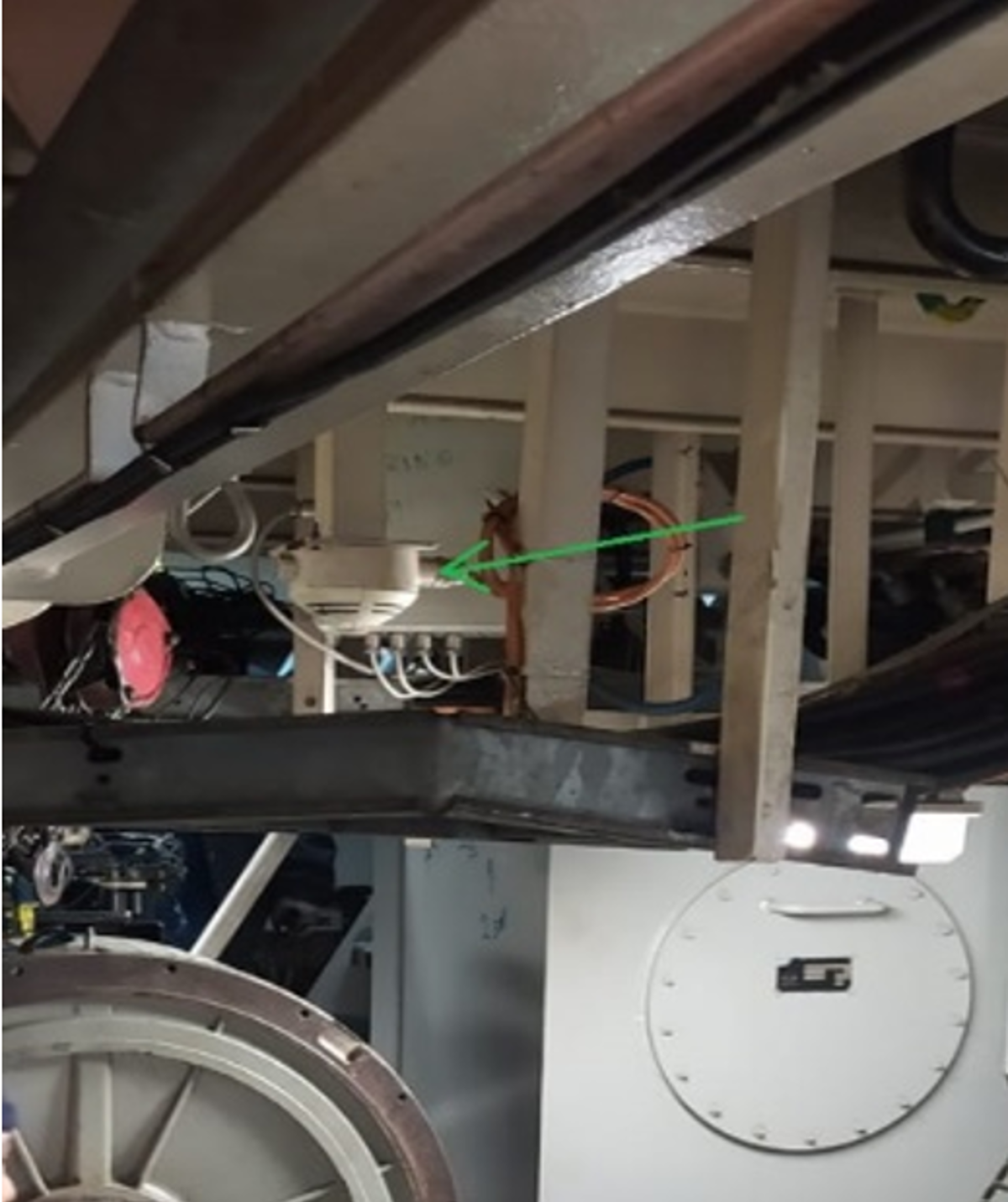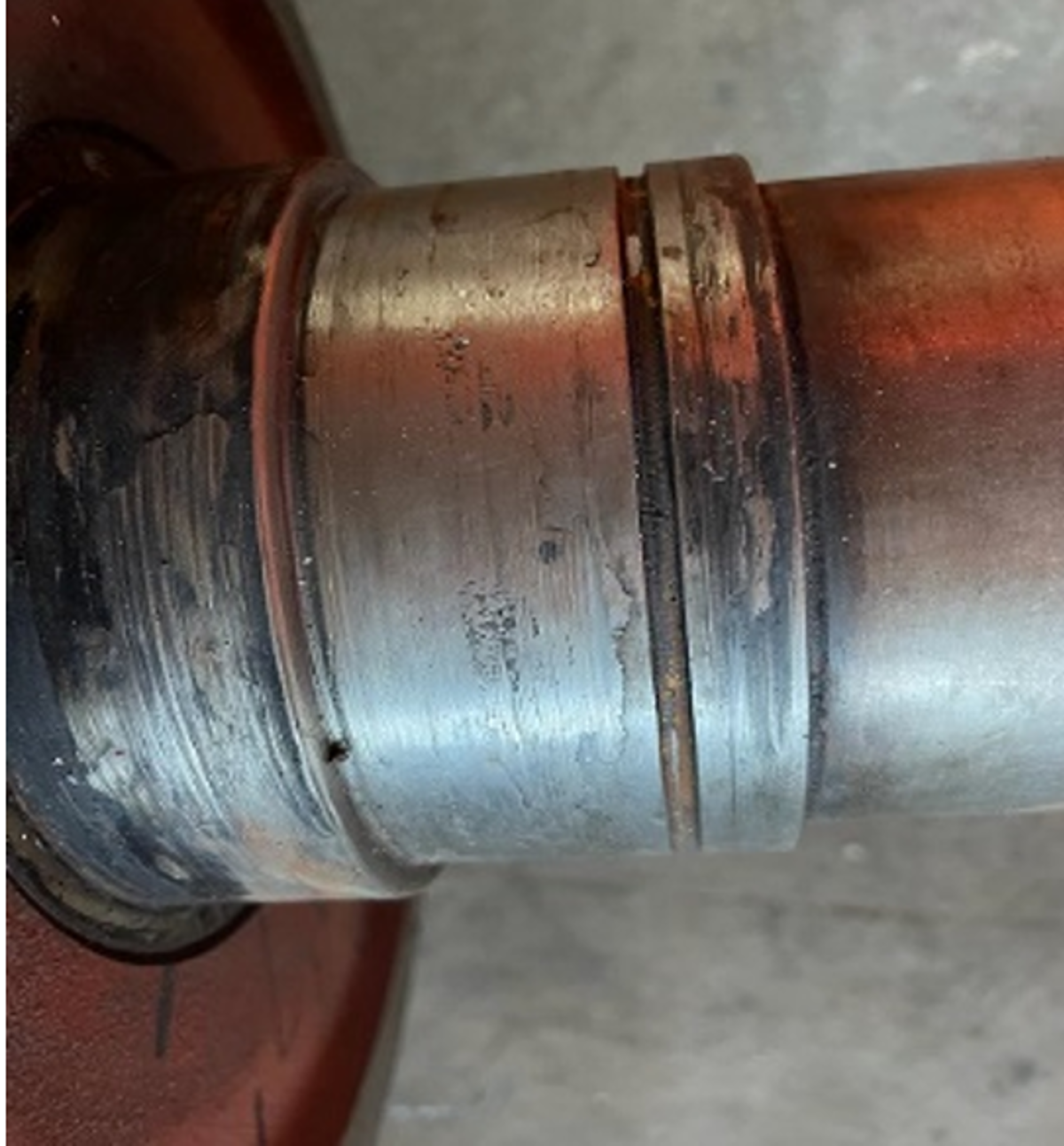Fire alarm activation in engine room
- Safety Flash
- Published on 16 May 2023
- Generated on 12 February 2026
- IMCA SF 12/23
- 2 minute read
Jump to:
There was a small fire in a vessel engine room.
What happened?
Little damage was done and no-one was harmed.
The incident occurred while a supply vessel was operating within the 500m Safety Zone of an offshore platform. An alarm appeared on the vessel’s fire alarm control panel, indicating a fire in the starboard side Engine Room cement compartment.
Engineers investigated, observed white smoke, and reported this to the Bridge. The Master decided to take the vessel out of the 500m zone, changed propulsion control mode to manual and then shut down the starboard main engine. The crew proceeded to muster stations.
After consulting with the Master and confirming that all personnel were mustered, the fixed CO2 system was activated by the Chief Engineer.
The vessel returned to port for further investigation and repairs.
What went wrong?
- The temperature sensor installed in the Starboard Shaft Generator was providing inconsistent readings since the most recent overhaul; this had not been reported by the engine crew.
- Our member highlighted two particular concerns:
- The firefighting CO2 suppression system remote activation failed. Further investigation revealed there was an issue with an empty pilot cylinder, potentially due to leakage in the piping between pilot and CO2 cylinders.
- Crew released CO2 system while trying to tackle the fire in cement compartment. However, the cement compartment appeared not to have a CO2 discharge point, as per vessel design, and this was not reflected in the vessel fire training manual.
- The firefighting CO2 suppression system remote activation failed. Further investigation revealed there was an issue with an empty pilot cylinder, potentially due to leakage in the piping between pilot and CO2 cylinders.
What was the cause?
The smoke was caused by a failed diesel generator bearing.
After disassembling the starboard shaft generator it was observed that grease in the bearing had overheated; this had generated dense white smoke.

Smoke detector over the affected shaft generator

Rotor of shaft generator/ failed bearing part caused overheating and smoke
Actions
- Ensure crew regularly practice their knowledge on fire emergency including the activation of the fixed CO2 fire suppression system.
- Ensure crew are familiar with the vessel fire training manual and fire response system design.
- Review the vessel fire manual to ensure it provides an accurate overview of the vessel’s firefighting equipment functionality and relevant limitations. Any discrepancies should be reported and addressed as a priority.
Related safety flashes
-
IMCA SF 17/20
1 June 2020
-
IMCA SF 15/14
8 September 2014
IMCA Safety Flashes summarise key safety matters and incidents, allowing lessons to be more easily learnt for the benefit of the entire offshore industry.
The effectiveness of the IMCA Safety Flash system depends on the industry sharing information and so avoiding repeat incidents. Incidents are classified according to IOGP's Life Saving Rules.
All information is anonymised or sanitised, as appropriate, and warnings for graphic content included where possible.
IMCA makes every effort to ensure both the accuracy and reliability of the information shared, but is not be liable for any guidance and/or recommendation and/or statement herein contained.
The information contained in this document does not fulfil or replace any individual's or Member's legal, regulatory or other duties or obligations in respect of their operations. Individuals and Members remain solely responsible for the safe, lawful and proper conduct of their operations.
Share your safety incidents with IMCA online. Sign-up to receive Safety Flashes straight to your email.